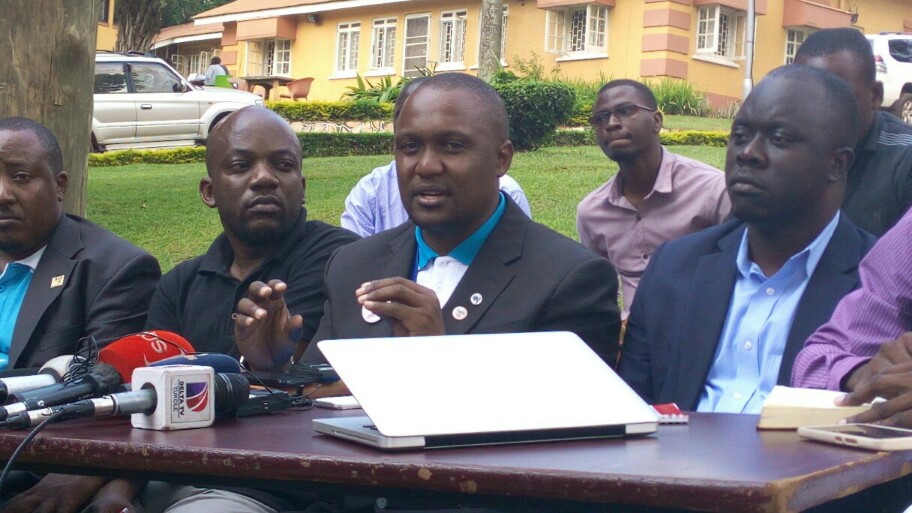Doctors under the Uganda Medical Association (UMA) have asked for more budgetary allocation towards the supply of drugs and liberalization of the provision of medical supplies in Uganda. This, they say will significantly address the acute shortage of drugs and other medical requirements in health facilities and make health care affordable.
The medics who a few weeks ago suspended a three weeks long strike due to poor working conditions say that despite recent promises made by government, rural health facilities still lack supplies.
While addressing a news conference at Mulago Hospital on Friday, Dr Ekwaro Obuku, the President of Uganda Medical Association said that the Shs 225 billion budget allocated to National Medical Stores (NMS) is meagre compared to the demand.
Among their demands during the strike, doctors wanted a supplementary budget of Shs 41 billion to be disbursed for medicines, vaccines and other medical supplies.
“We are pleased to have verified that NMS delivered assortments of supplies in Kirundu and Kawempe. However we have have received reports of shortage in rural areas where patirets are again buying their own supplies,” Dr Obuku told the press.
Government gives NMS Shs 225 billion but Dr Obuku noted that the market consumes over Shs 1 trillion in drugs, much of which is supplied by private players but at a cost.
“We are saying that the budget to NMS be doubled to Shs 500 billion for now, so that Ugandans can access medicines otherwise they will continue buying medicisns which is contrary to the notion that Uganda’s public health care is free,” he added.
“There are supplies patients can’t buy – blood and oxygen,” he added.
But the problem of inadequate medical supplies is not limited to the budget constraints, he stated, adding that the issue of efficiency needs to be tackled in equal measure.
The doctors argue that the monopoly of NMS over the supply of medical assortments in public health facilities in Uganda has bred fraud and strained efficiency. They want the service opened up to private players inorder to create competition and efficiency.
“National Medical Stores should be investigated so we can understand why it buys medicine three to four times more than the price at the open private market. But we also need to create competition so that hospitals can choose where to buy their supplies,” Dr Obuku said.
Due to the environment of scarcity of drugs, private pharmacies have quickly sprung up around public hospitals like Kirundu and the others, he said.
“It is high time government ate its vomit and returned to cost sharing because it is happening anyway. It can adopt a contracting mechanism where pharmacists do the supply,” he said.
He argued that if government eliminated the middlemen and other unnecessary expenditures along the supply chain, significant gains would be made.
Asked about the common vice where health workers in public health centres steal drugs and sell them to patients and private clinics, Dr. Obuku commented that “we are aware that some do it as a survival strategy but this thrives when the regulation is weak”.
He addressed the press conference together other leaders of the Association including; Dr Edmond Odur, the Senior House Officers’ Vice Chairman, Dr Joseph Nyanzi, the UMA SACCO Secretary, Robert Lubega, the President of Intern Doctors and Dr Mukuzi Muhereza the UMA General Secretary.








